From Fragility to Resilience: Avoiding the Failed State Trap and the Road Ahead for Sudan
FromDec 03, 2022 To Dec 04, 2022
Hybrid Event
The ongoing social contestation movements in the Arab world, coming on the heels of the uprisings of 2011, and now the health and economic crises engendered by the Covid-19 global pandemic, have rekindled hope that the region is again on the cusp of change. While fueled by social and economic grievances, demonstrators have been calling for political change. The challenges they face in shaping a credible political posture that can deliver a better future are enormous. In Algeria, Iraq, Lebanon, and Sudan social movements have learned from the disappointing outcomes of 2011. But unlike in 2011, they face extremely difficult economic situations, as well as regional and international opposition to change.
This is not the first time a popular uprising has resulted in ousting an authoritarian government in Sudan. However, the cumulative impact of failed transitions had their toll on the country’s state institutions, territorial integrity, and economic development. A failed transition in 2005-2010, among other factors, resulted in the secession of South Sudan in 2011. Sudan’s old and new patterns of conflict continued. The loss of South Sudan oil rents aggravated an already precarious economic situation. The government’s response to the deteriorating economic conditions ignited deep-seated popular anger as Sudan’s youth and citizens watched the unfolding ‘Arab Spring’. In 2019, youth movements took to the streets. The protests continued despite the government’s ruthless suppression, and culminated in a popular uprising that ended up toppling al-Bashir’s Islamist regime, which ruled Sudan for 30 years.
While the popular uprising resulted in removing top echelons of the former regime, a precarious balance of power dictated a power sharing with top military and security circles. A constitutional document was signed on 17 August 2019 paving the way for a civilian cabinet to lead a 3-year transition intended to reach peace with armed movements, reform state institutions, rebuild the economy, and restore the country’s standing in the international community.
Change in Sudan is imbued with challenges. It is still not clear whether the ruling elites would rely on an inherently faulty approach to nation-state building, democratic governance and economic development, or – in line with the hopes of new change agents – adopt new, creative, people-led approaches. The main question then is whether the country is on the verge of a new, meaningful change, or whether the old patterns will reproduce themselves. The most recent setback due to the attempted coup and the massive popular rejection triggered by it makes this question all the more compelling for assessing the future direction of the country.
Conference Objectives
Against this background, ERF has launched a project that aims to empower civil society groups that are at the heart of the ongoing social movements in Sudan with the intellectual prowess to start moving from opposition to vision, and from slogans to programs: by engaging in debates on solutions that can work; envisioning the contours of a better future; reflecting on how to get there; and bargaining more effectively with political elites in the shaping of a more progressive social contract.
The main objective of this initiative is to strengthen the new social movements in Lebanon, Iraq, Algeria and Sudan by offering them an analysis of the economic, political and social conditions that could preside over a change in governance and a transformation of the practices of civility.
A series of workshops were organized with the researchers and the actors of the Hiraks. Particular emphasis will be placed on the innovations produced during the latest mobilization sequences. Exchanges between researchers and civil society members, and sharing their local experiences will make it possible to refine our analysis of the outlines of a new culture of protest, of its convergences (increased role of women, questions about the environment, the re-appropriation of local institutions …) and its contradictions (persistence of patronage and / or the role of the welfare state…).
This conference is an opportunity to discuss and disseminate the results of the research produced under the project, among the researchers and the different stakeholders.
Agenda
Day 1
Speakers
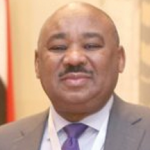
Research Fellows
Ibrahim Elbadawi
Development Studies & Research Forum, Dubai

Authors
Nada Ali
Lecturer, SOAS School of Law, University of...
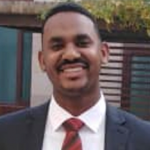
Authors
Alzaki Alhelo
PhD, Tufts University
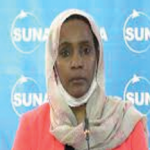
Speakers
Sara Hassanain
Former Acting Minister of Health, Sudan
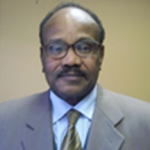
Authors
Abdelhadi Eltahir
Independent Consultant and Expert of Health Issues
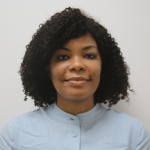
Authors
Lina Elbadawi
World Food Programme
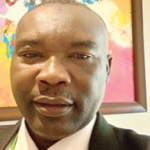
Speakers
Saif El Din Abd El Rahman
Resilience Advisor, UNDP Resilience Hub, Nairobi
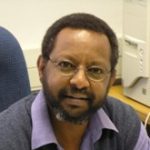
Research Fellows
Rashid Hassan
Emeritus Professor, CEEPA, Faculty of Natural and...
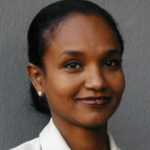
Speakers
Nada Eissa
Associate Professor, Public Policy and Economics, and...
Papers
Stubborn Historical Legacies: Power Relations and Government Policy in Sudan
Despite Sudan’s legacy of abrupt but successful popular uprisings, the country has failed to date... Read More
Stubborn Historical Legacies: Power Relations and Government Policy in Sudan
In a nutshell This policy brief was written pursuant to the commission of a paper... Read More
الموروثات التاريخية المقاومة للتغيير: ديناميات القوة وسياسات الحكومة في السودان
ملخص أُعد هذا الموجز بناءاً على دراسة مرجعية حول عجز الحكومات المتعاقبة/ الحكومات الانتقالية في... Read More
Freedom, Peace, and Justice: A New Paradigm for the Sudanese Health System After Sudan’s 2019 Uprising
This study demonstrates that health and its system are dynamic and interlinked with social and... Read More
Supporting Sudan for Change: New Concepts for Sudanese Health System Aligned with Sudan’s 2019 Uprising Call: Freedom, Peace, and Justice
In a nutshell Sudan has been through a revolution that determined freedom, peace, and justice... Read More
دعم السودان من أجل التغيير: مبادئ جديدة للنظام الصحي في السودان بما يتوافق مع الثورة السودانية لعام 2019 والتي تنادي بالحرية، والسلام، والعدالة
ملخص خــاض الســودان غمــار ثــورة اتخــذت مــن الحريــة والسلام والعدالـة شـعاًرا أساسـًيا لهـا على سـبيل... Read More
The Pitfalls of the Education System in Sudan: The Challenges of Transition, Transformation, Inclusivity and Future of Work
Inspired by popular protests that swept the kleptocratic regime of Omar al-Bashir from power, drawings... Read More
The Pitfalls of the Education System in Sudan: The Challenges of Transition, Transformation, Inclusivity, and Future of Work
In a nutshell Inspired by the popular protests that swept autocrat Omar al-Bashir from power... Read More
العقبات المستترة أمام نظام التعليم في السودان: تحديات الانتقال والشمول وتطلعات المستقبل
ملخص اِستمَدت هذه الورقة الإلهام من الاحتجاجات الشعبية التي أطاحت بنظام عمر البشير من السلطة،... Read More
Addressing Sustainability and Equity Challenges in Managing the Environment and Natural Wealth in Sudan
Ensuring sustainability is about protecting the rights of future generations in natural wealth endowments, which... Read More
Managing Sudan’s Environment and Natural Wealth for An Equitable and Green Future
In a nutshell Reforming the way natural wealth is exploited is necessary for establishing justice,... Read More
إدارة البيئة والثروة الطبيعية في السودان من أجل مستقبل عادل وأخضر
رسائل أساسية إصلاح طريقة استغلال الثروات والموارد الطبيعية ضرورى لتحقيق العدالة والسلام الدائم والتنمية المستدامة... Read More
Rebuilding the State Fiscal Federalism in Sudan
It is fitting that the modern history of Sudan is tightly intertwined with the call... Read More
Rebuilding the State and Fiscal Federalism in Sudan
In a nutshell Fiscal transfers to states varied substantially over time and relied heavily on... Read More
الفدرالية المالية وإعادة بناء الدولة السودانية
ملخص عبر الزمن ، تفاوتت التحويلات المالية للولايات وإعتمدت بدرجة كبيرة على عائدات النفط. وعليه،... Read More
Agenda
Day 2
Speakers
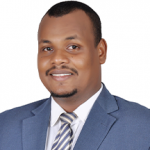
Authors
Mosab O. M. Ahmed
Senior Research Assistant, Development Strategies and Governance...
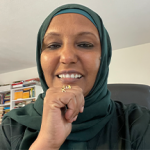
Speakers
Nada Mustafa Ali
Assistant Professor, School for Global Inclusion and...

Research Fellows
Ibrahim Elbadawi
Development Studies & Research Forum, Dubai

Authors
Alzaki Alhelo
PhD, Tufts University

Authors
Kabbashi Suliman
University of Khartoum
Papers
Sudan’s Youth Bulge: Challenges, Opportunities, and Aspirations
The Sudanese youth from both genders mounted a remarkably courageous uprising in December 2018 aimed... Read More
Sudan’s Challenges and Opportunities: A Renaissance Project for Sudan
The initial conditions of the Sudanese agricultural sector are quite dire. Despite more than half... Read More
Sudan’s Challenges and Opportunities: A Renaissance Project for Sudan – From Poor Agriculture to Agro-Industrial Growth and Sustainable Development
In a nutshell Key interventions to catalyse the transformation of Sudanese agriculture from a subsistence-oriented,... Read More
التحديات والفرص في السودان: مشروع نهضة للسودان من الزراعة التقليدية إلى النمو الصناعي الزراعي والتنمية المستدامة
رسائل أساسية تشمل التدخلات الرئيسية لتحفيز تحول الزراعة في السودان من وضع الإنتاج المنخفض الموجه... Read More


